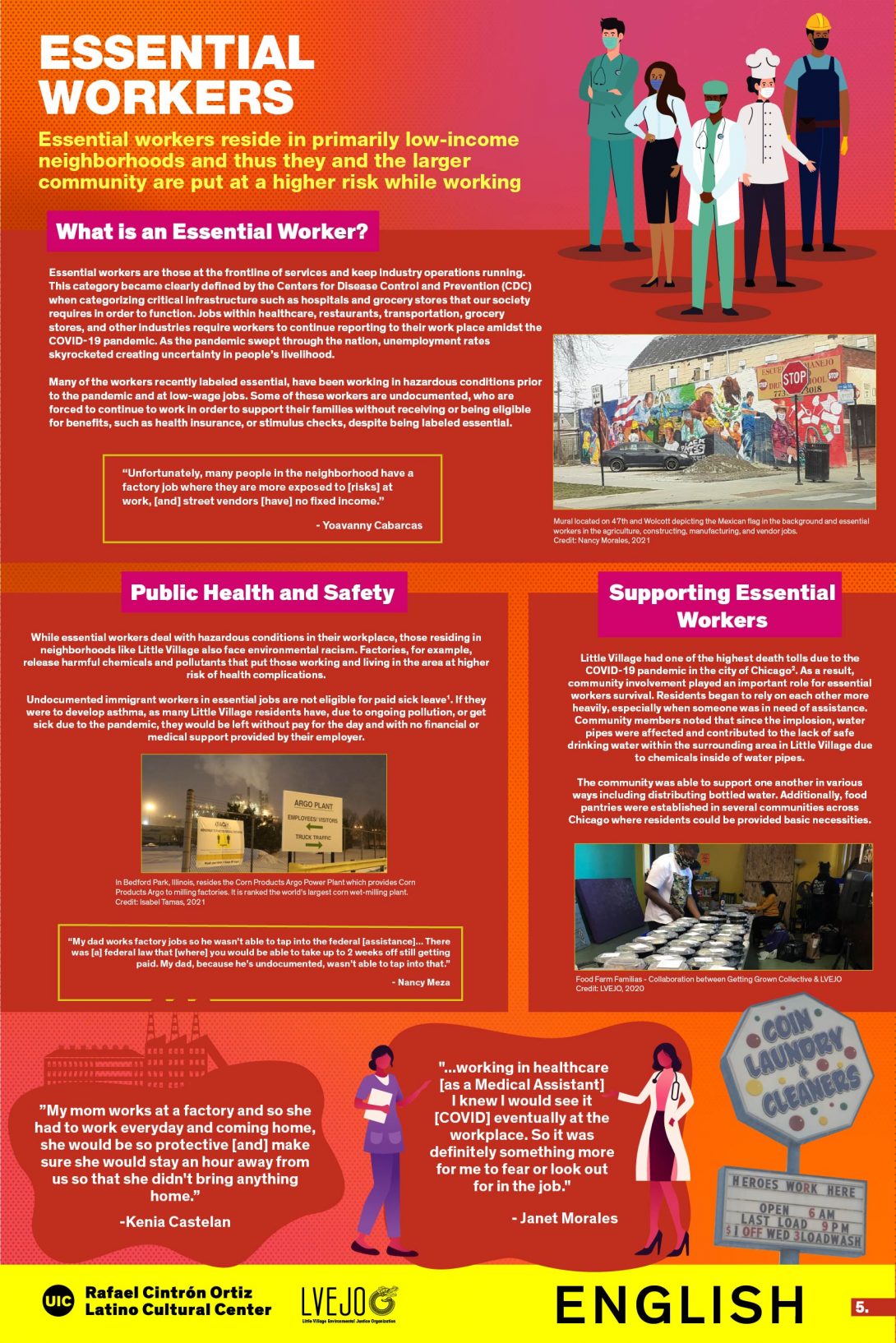Essential Workers
Essential workers reside in primarily low-income neighborhoods and thus they and the larger community are put at a higher risk while working
essential workers Heading link

What is an Essential Worker?
Essential workers are those at the frontline of services and keep industry operations running. This category became clearly defined by the Centers for Disease Control and Prevention (CDC) when categorizing critical infrastructure such as hospitals and grocery stores that our society requires in order to function. Jobs within healthcare, restaurants, transportation, grocery stores, and other industries require workers to continue reporting to their work place amidst the COVID-19 pandemic. As the pandemic swept through the nation, unemployment rates skyrocketed creating uncertainty in people’s livelihood.
Many of the workers recently labeled essential, have been working in hazardous conditions prior to the pandemic and at low-wage jobs. Some of these workers are undocumented, who are forced to continue to work in order to support their families without receiving or being eligible for benefits, such as health insurance, or stimulus checks, despite being labeled essential.
“Unfortunately, many people in the neighborhood have a factory job where they are more exposed to [risks] at work, [and] street vendors [have] no fixed income.” – Yoavanny Cabarcas
Public Health and Safety
While essential workers deal with hazardous conditions in their workplace, those residing in neighborhoods like Little Village also face environmental racism. Factories, for example, release harmful chemicals and pollutants that put those working and living in the area at higher risk of health complications.
Undocumented immigrant workers in essential jobs are not eligible for paid sick leave. If they were to develop asthma, as many Little Village residents have, due to ongoing pollution, or get sick due to the pandemic, they would be left without pay for the day and with no financial or medical support provided by their employer.
“My dad works factory jobs so he wasn’t able to tap into the federal [assistance]… There was [a] federal law that [where] you would be able to take up to 2 weeks off still getting paid. My dad, because he’s undocumented, wasn’t able to tap into that.” – Nancy Meza
Supporting Essential Workers
Little Village had one of the highest death tolls due to the COVID-19 pandemic in the city of Chicago. As a result, community involvement played an important role for essential workers survival. Residents began to rely on each other more heavily, especially when someone was in need of assistance. Community members noted that since the implosion, water pipes were affected and contributed to the lack of safe drinking water within the surrounding area in Little Village due to chemicals inside of water pipes.
The community was able to support one another in various ways including distributing bottled water. Additionally, food pantries were established in several communities across Chicago where residents could be provided basic necessities.
“My mom works at a factory and so she had to work everyday and coming home, she would be so protective [and] make sure she would stay an hour away from us so that she didn’t bring anything home.” -Kenia Castelan
“…working in healthcare [as a Medical Assistant] I knew I would see it [COVID] eventually at the workplace. So it was definitely something more for me to fear or look out for in the job.” – Janet Morales